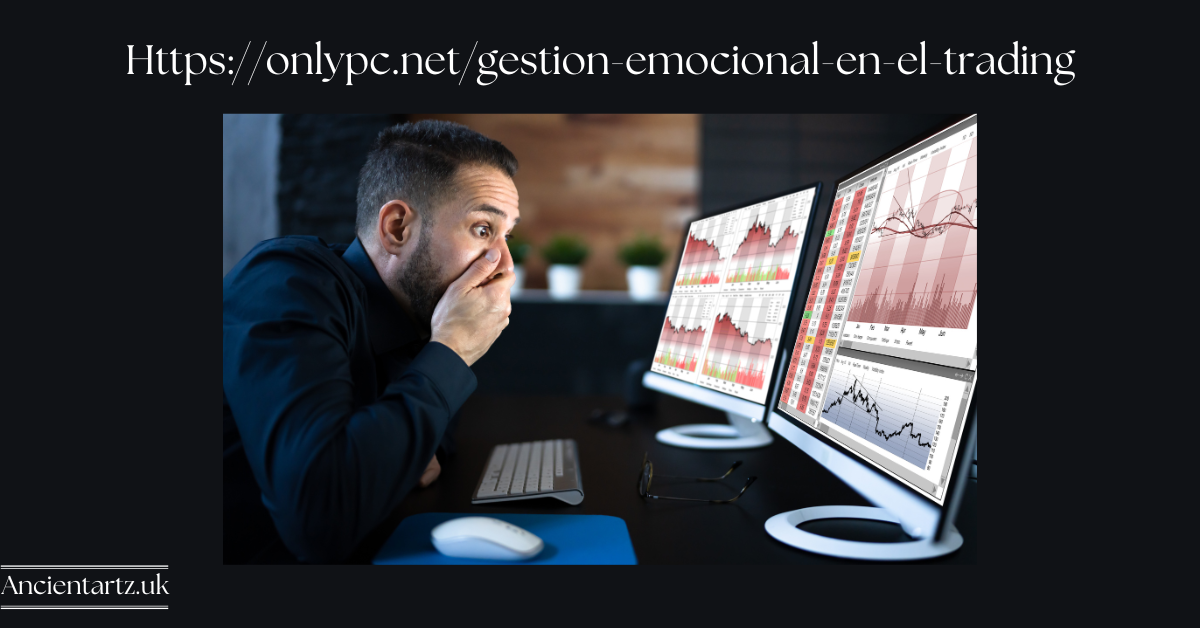eHttps://onlypc.net/gestion-emocional-en-el-trading; Trading is the best source for transforming your earnings into profits. But sometimes, the emotions get over us and we start making mistakes. Controlling your emotions during the investment is the secret to financial success. Trading is not less than a ride on a rollercoaster. One moment you become happy with the sudden unimaginable profit but in the second moment you will surprised by the sudden loss.
The Importance of Emotional Management
Trading is inherently stressful. The high stakes involved, coupled with the unpredictability of financial markets, can evoke a range of emotions: excitement, fear, greed, and anxiety. These emotions, if left unchecked, can lead to irrational decision-making, resulting in significant losses. Recognizing the impact of emotional responses is crucial for traders, as their ability to manage these emotions often determines their long-term success. Experts assert that emotional intelligence—defined as the ability to identify, understand, and manage one’s own emotions—plays a vital role in trading. High emotional intelligence allows traders to maintain a level-headed approach, make rational decisions, and recover quickly from inevitable setbacks. Consequently, traders must prioritize emotional management as a fundamental aspect of their trading strategy.
Strategies for Managing Emotions in Trading
To effectively manage emotions, traders can adopt strategies such as creating a clear trading plan that outlines rules for entry, exit, and risk management, which helps prevent impulsive decisions. Practicing mindfulness through techniques like meditation and deep breathing increases awareness of emotional states, enabling more thoughtful responses. Keeping a trading journal to track trades, emotions, and outcomes helps identify patterns, while setting realistic, long-term goals reduces pressure and emotional decision-making. Finally, accepting losses as part of trading helps mitigate fear and anxiety, focusing on a proper risk-reward ratio instead of avoiding losses altogether.
The Emotional Roller Coaster of Trading
Emotions play a significant role in trading decisions, with key emotions including fear, greed, anxiety, euphoria, and frustration. Fear can cause premature exits, while greed often leads to excessive risk-taking after a series of successful trades. Anxiety, driven by market uncertainty, can cloud judgment and spur impulsive decisions. Euphoria following a big win can result in neglecting risk management, while frustration from losses or missed opportunities may lead to chasing losses with larger positions, worsening the situation. Understanding and managing these emotions is crucial for maintaining disciplined and effective trading strategies.
The Role of Technology in Emotional Management
Today, technology plays a significant role in managing the emotional aspects of trading. Many platforms offer features such as automated trading systems, which allow traders to implement their strategies without decision-making influenced by emotions. Moreover, analytical tools help traders focus more on data rather than feeling overwhelmed by what the market is doing at any given moment.
Common Pitfalls in Emotional Management
Despite the best strategies, traders may still fall victim to emotional pitfalls. Here are a few common traps to be aware of:
- Overtrading: Driven by greed or the fear of missing out, overtrading can lead to exhaustion and poor decision-making.
- Loss Aversion: The fear of losing often weighs heavier than the desire to gain, causing traders to hold onto losing positions longer than they should.
- Confirmation Bias: Traders may seek out information that supports their existing beliefs, ignoring data that contradicts their positions, leading to misguided trades.
- Revenge Trading: After a loss, traders might impulsively make aggressive trades in an attempt to recover lost capital, which often leads to further losses.
By recognizing these pitfalls, traders can implement corrective measures to maintain emotional balance.
Read More: shaun so
Practical Tips for Controlling Emotions While Trading
Trading can be tough because of emotions. But, you can learn to handle them. Here are some tips to help you control your feelings and do better in trading.
Gradual Application of Emotional Management Techniques
Managing emotions in trading is not easy. It takes small steps to get better. First, find out what makes you feel certain ways. Then, learn ways to deal with those feelings. Try mindfulness, write in a journal, or talk to a trading coach. These can help you understand and control your emotions.
Avoiding Common Mistakes in Emotional Trading
Trading with emotions can lead to big mistakes. Don’t let fear, greed, or too much confidence control you. Make a plan for how you’ll manage risks and stick to it, even when you feel different. Also, don’t keep losing trades hoping to win back money. This is called the sunk cost fallacy. By following these tips, you can become more emotionally disciplined. This will help you trade better and feel better too. Remember, it’s a journey, but it’s worth it.
FAQs
Why is emotional management important in trading?
Emotional management prevents impulsive decisions, helping traders stay disciplined and avoid significant losses.
What are common emotional pitfalls in trading?
Common pitfalls include overtrading, loss aversion, confirmation bias, and revenge trading.
How can mindfulness help traders?
Mindfulness techniques like meditation increase self-awareness, enabling traders to respond calmly to market volatility.
What role does technology play in emotional management?
Automated trading systems and analytical tools minimize emotion-driven decisions by focusing on data-driven strategies.
What is the sunk cost fallacy in trading?
It’s holding onto losing trades hoping to recover losses, often leading to greater setbacks.
The End
Effective emotional management is essential for trading success, helping traders make rational decisions and avoid costly mistakes. By understanding emotions, adopting strategies like mindfulness, and leveraging technology, traders can maintain discipline, improve performance, and navigate the emotional challenges of the market.
Stay Connected: Ancientartz.uk
